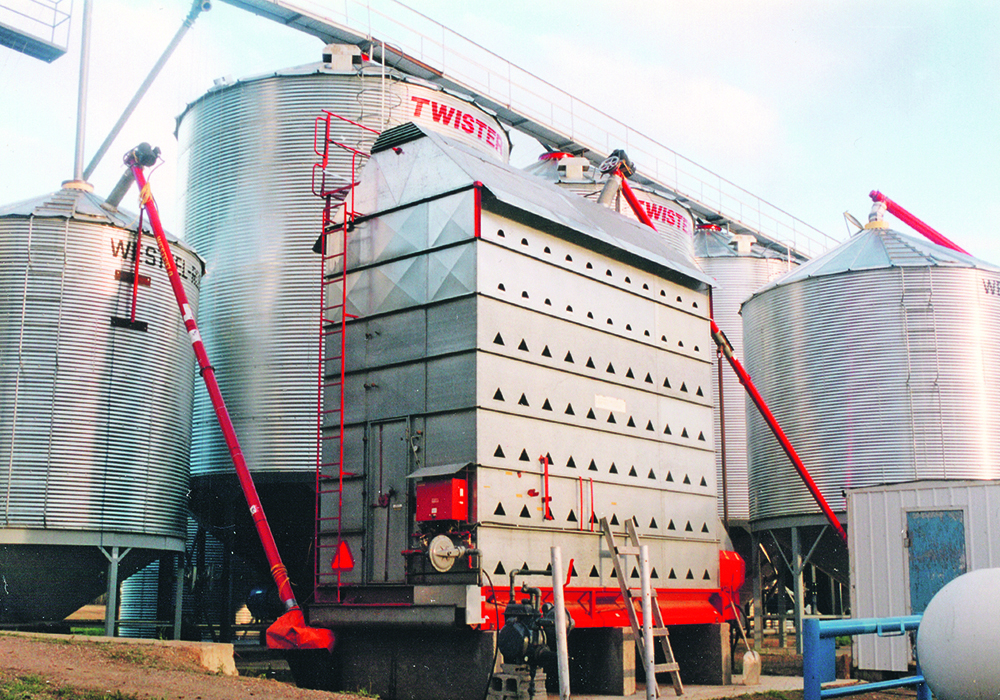Propane, natural gas would be exempt from the federal carbon price if private member’s bill makes it through the Senate
The Senate agriculture committee began its scrutiny of Bill C-234 last week, moving a possible carbon price exemption for natural gas and propane on farms one step closer.
The bill passed in the House of Commons earlier but didn’t get to the Senate before the summer break.
Senator David Wells sponsored the bill in the Senate. He told the committee the importance of the exemption is highlighted by an example of a broiler chicken operator who has to heat his barn.
Read Also

Using artificial intelligence in agriculture starts with the right data
Good data is critical as the agriculture sector increasingly adopts new AI technology to drive efficiency, sustainability and trust across all levels of the value chain.
“Those costs are currently over $10,000 a month and will rise to over $40,000 per month when the tax reaches $170 per tonne, resulting in a cost of over a quarter million dollars per year, out the window with no benefit to the operation,” he said.
This is not an isolated example, he added.
Wells said the exemption does not challenge the market signal a carbon price sends.
“This is not a call to dilute our environmental responsibilities. Rather, it’s a plea to recognize the unique position of our farmers, ranchers and growers and to give them the tools to thrive as they work within a framework of environmental responsibility,” he said.
Conservative MP Ben Lobb introduced the bill in the Commons. He noted that the rebate program the Liberal government implemented provides only “a pittance.”
The rebate is based on overall expenditures and isn’t directly tied to what a farmer spends on carbon tax, said senator Victor Oh.
Government officials at the meeting said that incentive programs are steering farmers toward more energy efficient grain dryers and other technology to reduce carbon emissions.
Warren Goodlet, director general of the research and analysis directorate at Agriculture Canada, said the Agricultural Clean Technology Program has supported 252 projects worth $98 million, including 99 enhanced efficiency grain dryers valued at $37 million.
Money allocated to that program was tripled in the 2022 budget because of demand, said Marco Valicenti, director general of the innovation programs directorate. The first intake was a continuous application process but the second was closed and applications are being evaluated based on their greenhouse gas emissions reduction potential.
The committee heard that the original carbon pricing program was based on the British Columbia program and that’s why propane and natural gas for grain drying wasn’t included from the beginning.
Asked if it was an oversight to leave those two fuels out, Phil King, director general of the sales tax division at finance, said it was deliberate.
“Bigger picture, there’s very little of the emissions from the farming sector that are actually priced,” he said. “The one area where they are is in heating and drying, yet that funding is still returned to farmers, not dollar for dollar obviously, but to your specific point, I think it was a very deliberate policy choice.”
Deputy committee chair Paula Simons asked officials if it was logical to model a national program on a single province considering how different agriculture is across regions. King said each province could have developed its own pricing system.
She said as a consumer she understands how a price signal could lead people to buy a more fuel-efficient car or an induction stove.
“If I’m a farmer, however, my capacity to change my practice is much less elastic. Believe me, I support carbon taxes. However, a system that works really well to send a consumer a signal may not be as functional to send a farmer a signal because he or she has less capacity to make individualized spending decisions because of the capital intensive nature of their work,” she said.
An Environment Canada official said removing the carbon price from propane and natural gas would mean between two and three tonnes of greenhouse gas emissions on farms would no longer be covered.
Jeff Lindberg, manager of engagement and assessment at the carbon market bureau, said officials expect emissions would increase because less action would be taken.
Senators also asked if the exemption would be more accurate than the rebate. King said it would but then the price signal is removed.
Another finance official said there is the possibility of a double payment if C-234 is approved and the rebate is in place.
Committee discussion began after the most recent Parliamentary Budget Officer report updated its estimate of what the exemption would cost. Atlantic provinces are now under the federal carbon pricing system; only Quebec and British Columbia have their own systems.
The report estimated that between 2023-24 and 2030-31 exemptions would be worth $979 million. Put another way, that’s what the carbon price would cost farmers during that period.
Conservative agriculture critic John Barlow said as the carbon tax increases the entire supply chain will be affected.
“Canadian farm operations can’t afford to pay these crushing taxes and remain in business,” he said.
According to Goodlet, 2022 operating expenses for all farms totalled about $73 billion and all fuel costs were $2.5 billion.
Officials from several agricultural organizations were to appear at committee Sept. 26.
















